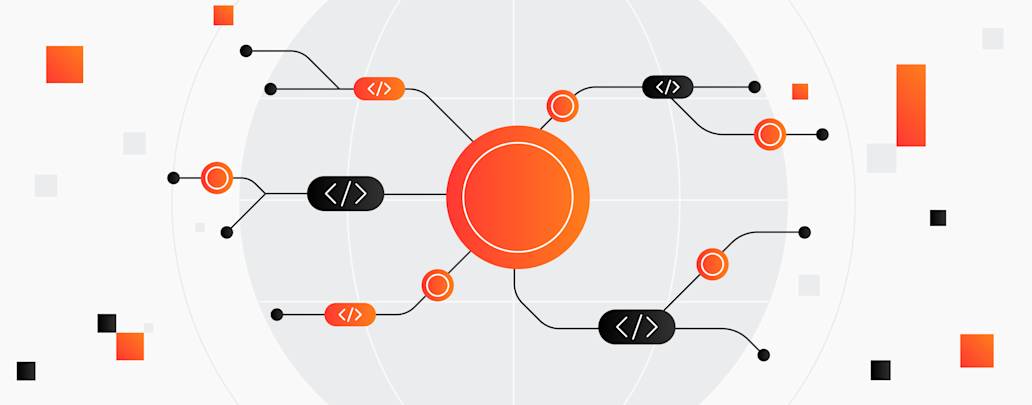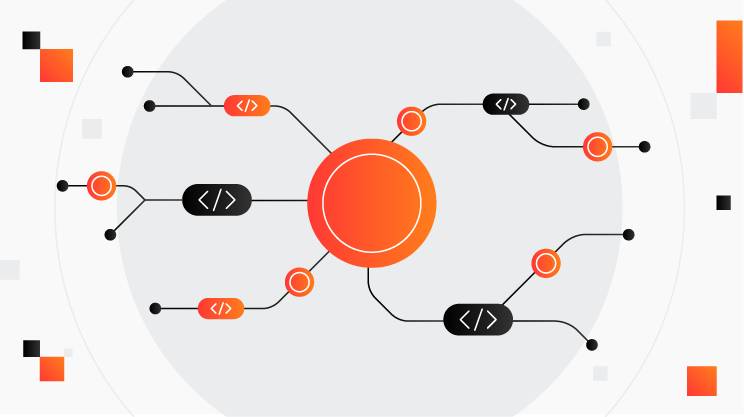Compare the top 5 payment processing software and service providers in Australia 2025

Vanessa Yip
Business Finance Writer

Key takeaways
Payment processors handle your complete transaction journey from authorisation to settlement, not just the checkout.
The right processor reduces failed payments, speeds up cash flow, and cuts hidden FX fees on international transactions.
This guide compares 5 leading payment processing companies in Australia to help you choose the best fit.
Every time a payment fails, you lose more than a sale. You lose customer trust, operational time, and revenue that should be in your account. The wrong payment processor can cost Australian businesses thousands in hidden FX fees, slow settlement times, and transaction failures.
As non-cash transactions reached 1.65 trillion globally in 2024 – and is projected to hit 2.838 trillion by 20281 – choosing the right payment processing provider directly impacts your cash flow and growth.
This guide compares the top payment processing software companies for Australian businesses, exploring pricing, settlement speed, and hidden costs to help you choose a processor that actually works for your bottom line.
What is a payment processing company?
A payment processing company manages your complete transaction journey. When a customer clicks "pay," your payment processor springs into action behind the scenes: authorising the payment, communicating with banks and card networks, settling funds, and transferring money into your account.
This is different from a payment gateway, which only handles the customer-facing checkout (capturing and encrypting payment details). Your processor does the heavy lifting: verifying funds are available, moving money between accounts, and managing settlement timeframes.
Most modern payment companies bundle both gateway and processing functions together. Airwallex, for example, provides end-to-end payment infrastructure that handles everything from checkout to settlement on one platform.
Top payment processing software providers in 2025
Finding the right payment processing company depends on your business type, transaction volume, and where your customers are located. These payment solutions each offer different strengths for Australian businesses:
Adyen: Amsterdam-based enterprise processor offering unified commerce across online, mobile, and in-store payments in 150+ currencies.
Airwallex: Australian-founded processor with like-for-like settlement in 20+ currencies, built for businesses selling internationally.
PayPal: Globally recognised payment brand with ready-to-go eCommerce integrations and buyer protection across 200+ markets.
Shopify: Native payment processor for Shopify stores with seamless checkout integration and support for 133 currencies.
Square: Point-of-sale specialist with integrated hardware, next-day settlement, and tools for Australian physical retail businesses.
What to look for when choosing a payment processor
Choosing the right payment processing software can be a business-critical decision. The best providers are easy to use, secure, and flexible. Here are the top features to look out for:
Settlement speed: How quickly do funds hit your account after a transaction? Fast settlement (same-day or next-day) improves cash flow and gives you the flexibility to reinvest in growth. Slower processors take 2–3 business days or longer.
Transaction authorisation rates: What percentage of legitimate transactions successfully process? Even a 1–2% improvement in authorisation rates can significantly boost revenue. The best processors optimise routing to increase approvals.
Multi-currency handling: If you sell internationally, does the processor let you collect and hold funds in multiple currencies? Forced currency conversions eat into margins. Like-for-like settlement (receiving funds in the same currency customers pay) saves on FX fees.
Integration ease: The processor should be able to connect seamlessly to your eCommerce platform, accounting software, and other tools. No-code integrations save development time and reduce technical complexity.
Security and fraud protection: Your processor must be PCI DSS compliant. Look for real-time fraud detection, tokenisation, and chargeback management tools that protect your business without adding customer friction.
Transparent pricing: Fee structures should be clear and straightforward. Watch for hidden charges on currency conversion, international cards, chargebacks, or monthly minimums that inflate costs.
Scalability: Can the processing platform grow with your business? As transaction volumes increase or you expand to new markets, your processor should support that growth without forcing you to migrate providers.
Compare the top payment processing companies in 2025
Here's how the leading payment processors stack up across key features important to Australian businesses. This comparison of Australian payment processors covers pricing, settlement options, and local support:
| Airwallex | Adyen | Square | PayPal | Shopify |
|---|---|---|---|---|---|
Settlement speed | 1–3 days | ~2 days | Next day | 2–3 days | ~2 days |
Currencies | 130+ | 150+ | AUD-only | 25+ | 133 |
Like-for-like settlement | |||||
Local payment methods | 160+ | 250+ | Limited | Limited | Limited |
eCommerce integrations | |||||
Online fee – Domestic | 1.65% + A$0.30 | IC++ | 2.2% | 2.90% + A$0.30 | 1.75% + A$0.30 |
Online fee – International | FX from 0.5% | IC++ | N/A | 3.90% + A$0.30 | +2% gateway fee |
Monthly fee | A$0 (when fee waiver met) | A$0 | A$0 | A$0 | From A$39 |
Adyen
Adyen is a global payment processing provider headquartered in Amsterdam, known for its comprehensive and flexible platform. Established in 2006, Adyen supports a wide range of payment methods and currencies, and is designed to meet the needs of businesses from various industries. Adyen offers solutions for online, in-app, and in-store payments in over 200 countries and 150 currencies.2
Pros
Offers an extensive global reach
Includes real-time transaction monitoring and detailed analytics
Offers customisable pricing models for different business needs
Cons
Pricing structure sees your fees change for each transaction
Primarily geared towards larger enterprises; smaller Australian businesses may not get hands-on local account management.
Limited focus on small businesses, generally more suitable /for medium to large-sized businesses
Airwallex
Airwallex is a global payment solution that lets you accept payments in more than 160 local payment methods across 200 countries. No-code to fully-customisable integration options make it easy to get started quickly, and you can save your business fees with like-for-like settlement into multi-currency accounts. In other words, you can settle payments in the same currency that your customers pay in, saving you on costly exchange rates.
Airwallex lets you bank like a local, letting you open local foreign currency accounts in 20+ currencies without having to go to a bank or complete any complicated paperwork. The platform also offers FX and transfer solutions, with competitive interbank fees. Uniquely, our investment product, Yield, allows businesses to earn competitive rates on their idle AUD and USD funds. Other features like virtual cards, accounts payable, and expense management, make it ideal for growing businesses.
Pros
Extensive global reach, letting you collect payments from 130+ countries from 160+ local payment methods
Flexible integration options, ranging from a simple plug-and-play solution to a fully customisable checkout
An all-in-one platform for business financial operations, combining accounts, payments, corporate cards, and more
Cons
No physical branches – digital only platform and service
New updates and optimisations being released regularly, which may not suit the user habits of all consumers
Physical POS system coming soon
Square
Both physical and online businesses use Square for its point-of-sale (POS) solutions and customisable payment links to accept customer payments. It's well-suited to physical businesses, offering a range of hardware tools, inventory management, and employee management features. However, the higher fees for online transactions and the inconsistency in customer support can make it a less favourable option for eCommerce and international businesses.
Pros
Services in-person and online businesses
Social media commerce tools available as it integrates with Facebook and Instagram
POS set up is generally considered easy
Cons
Higher fees for international transactions
Separate software is required for multi-currency accounts and Square doesn't hold multi-currency funds
Limited customisation options in exchange for easy use
PayPal
PayPal supports a variety of payment methods, including credit and debit cards, bank transfers, and PayPal balances. The platform also offers invoicing, subscription payments, and mobile payments.
PayPal’s widespread acceptance is available for personal and business use. However, PayPal is likely to incur higher fees for business transactions, which in the long-term may affect your business’ bottom line.
Pros
Wide-spread acceptance and various payment methods
Generally suitable for physical and digital stores
Offers buyer and seller protection
Cons
Higher fees for international transactions
Limited checkout customisation
Shopify
Designed for eCommerce businesses, this payment processing platform offers eCommerce integrations and tools to manage online stores. Shopify offers multi-currency support for over 100 currencies, although Shopify Payments is only available in certain regions, which may limit suitability for some international businesses. However, the eCommerce integrations aren't as flexible for businesses not using Shopify.
Pros
Generally considered to offer a user-friendly platform
Includes extensive Shopify ecosystem to integrate with other applications
Built-in sales and marketing tools
Cons
Additional fees for many features despite transparent pricing plan
Shopify Payments have slower payout times (one to three days) compared to dedicated payment processors
Shopify charges additional fees for using external gateways which can be expensive for high-volume stores
How can you reduce payment processing fees?
Reducing payment processing fees is essential for businesses looking to protect their operating profit. When evaluating payment processing services, the total cost matters more than the advertised rate.
You can reduce processing fees through several proven strategies: choosing the right pricing model, avoiding hidden international fees, and using direct debit for automated payments.
Even small reductions in fees can result in significant savings when processing a high volume of transactions. For example, a 1% fee reduction can save 1% of your total processed volume each month – which adds up quickly at scale.
Here are some ways businesses can reduce costs:
Assess business needs: Start by reviewing the volume and type of transactions being processed. Providers offer several pricing models, including fixed-rate, interchange-plus, and subscription-based. For smaller transactions, a fixed-rate model may be more cost-effective, while interchange-plus pricing might offer savings for larger international volumes.
Reduce international fees: For global operations, consider providers like Airwallex that offer low or no foreign transaction fees and competitive currency conversion rates. Avoiding unnecessary conversion fees can result in substantial savings.
Use payment gateways strategically: For businesses not using an end-to-end processor, consider integrating with gateways that offer reduced fees for specific transaction types. Some gateways provide preferential rates for certain channels.
Manage chargebacks effectively: Chargebacks can lead to lost revenue and additional fees when initiated by customers seeking refunds. Select a provider with strong chargeback management tools, and implement transparent refund policies, clear communication, and robust fraud protection to minimise risk.
Review processing costs regularly: Processing fees and provider offerings can shift over time. Periodic reviews help businesses stay informed and ensure they're receiving competitive rates.
What questions should you ask when onboarding a payment processing company?
Understanding whether a payment processing system aligns with a business’s operational needs, budget, and growth plans is essential.
Asking the right questions will help build a clear picture of what to expect. Here are 10 common questions, which should provide the information to help you make an informed decision:
What are the transaction fees? Ask the provider about all applicable charges, including transaction fees, monthly fees, setup fees, conversion costs, and any hidden expenses. A clear understanding of total costs per transaction and potential additional fees supports better budgeting. For example, at Airwallex, many businesses request forecasted cost estimates.
Are there any long-term contracts or early termination fees? Some providers may require a commitment to a long-term contract, which could include fees for early termination if switching becomes necessary.
What types of payments can be processed? Ensure the provider supports all relevant payment types, including international transactions. This is especially important for businesses operating globally or planning to expand.
How long does it take for funds to be settled? Settlement timeframes can affect cash flow, so it’s important to ask how long it typically takes for funds from transactions to be deposited.
What security measures and compliance standards do you have in place? When accepting credit card payments, sensitive financial data is handled. Ask about the provider’s security protocols, fraud prevention measures, authorisation processes, and compliance with relevant standards to ensure data protection. Poor payment experiences can damage a business’s reputation.
Is your system compatible with our current business software? Seamless integrations with current platforms such as eCommerce systems, accounting software, or CRMs are essential for operational efficiency.
What level of customer support is offered? Reliable customer support is critical for resolving payment issues. Ask about the support channels available (bots or agents, email or phone), the hours of availability, and typical response times.
Can multi-currency transactions be handled? For businesses accepting payments from customers in different countries, it’s important to confirm if multi-currency support is available and to understand the associated currency conversion fees. Some providers charge unnecessary fees, including foreign transaction costs or high FX margins.
What is the chargeback policy? Knowing how the provider manages chargebacks and whether any support or protection is included can help reduce potential losses.
Are any value-added services available? Some providers include tools like analytics, reporting, or marketing insights. Understanding available extras can help a business maximise the value of its payment processing solution.
Why choose Airwallex as a payment processing software provider
Airwallex stands out for combining global reach with cost-effective multi-currency solutions tailored to modern businesses. If you operate across borders or in multiple currencies and you’re looking for a reliable payments processing provider to help you save time and money, Airwallex is hard to beat.
We help businesses slash admin hours, offer seamless customer and supplier payments, and save on foreign transaction fees.
Easy to use: Users enjoy one centralised dashboard that’s easy to navigate. No third parties to deal with.
Global reach, local experience: Collect payments in 130+ currencies with local payment methods that cater to customers’ preferences. Set up multi-currency accounts with local bank details.
eCommerce integrations: Plug in seamlessly with platforms including Shopify, WooCommerce and Magento to accept customer payments from 200+ countries.
Eliminate costly FX fees: Maximise revenue with like-for-like currency settlement and avoid forced auto-conversion.
Human support: We have a dedicated service team ready to help resolve any issues quickly.
Airwallex supports a range of organisations to process one-time and recurring payments, from eCommerce stores to subscription businesses and online marketplaces. Our payments processing platform is designed to help you grow and safeguard your global revenue.
Payment processing systems: Frequently asked questions
What is payment processing software?
Payment processing software refers to digital tools that help businesses accept and manage online transactions. These platforms securely transfer financial data between customers, banks, and merchants, streamlining how payments are authorised, processed, and reconciled. These tools are usually cloud-based and send financial information from your customer’s card to your bank and the customer’s bank.
What important factors should be considered when selecting a payment processing solution?
When comparing payment processing companies, key considerations include security standards, transaction fees, system usability, and the ability to integrate with existing tools. Leading online payment processing companies also offer real-time reporting and scalability for growing businesses, including security credentials, cost, flexibility, which payment methods are supported, integration capabilities and how easy it is to use.
How much does it cost to onboard payment processing software?
Costs vary depending on the payment provider. Some payment processors charge per transaction, while others offer flat-rate or subscription pricing. It’s important to review terms for hidden charges like FX fees or early termination clauses when evaluating different payment processing companies and the type of transaction. Some offer subscription plans, while others operate on a flat-rate model. Don’t forget there are often hidden fees for international payments.
How safe are payment processing services?
Reputable payment processors use PCI DSS-compliant systems, end-to-end data encryption, and fraud detection tools to safeguard sensitive customer data. Security remains a key differentiator among online payment providers.
Sources
https://www.capgemini.com/insights/research-library/world-payments-report/
https://www.adyen.com/en_au/pricing
https://squareup.com/au/en/pricing
https://www.paypal.com/au/webapps/mpp/merchant-fees
https://www.shopify.com/au/pricing
Disclaimer: The information in this article is based on our own online research. Airwallex was not able to manually test each tool or provider. The information is provided for educational purposes only and a reader should consider the specific requirements of their business when evaluating providers. This research is reviewed annually. If you would like to request an update, feel free to contact us at [[email protected]]. This information doesn’t take into account your objectives, financial situation, or needs. If you are a customer of Airwallex Pty Ltd (AFSL No. 487221) read the Product Disclosure Statement (PDS) for the Direct Services available here.
View this article in another region:Hong Kong SAR - EnglishHong Kong SAR - 繁體中文SingaporeUnited KingdomUnited States

Vanessa Yip
Business Finance Writer
Vanessa is a business finance writer for Airwallex. With experience working at leading B2B technology companies, Vanessa is passionate about helping Aussie businesses, large and small, grow through cutting-edge tech. In her day-to-day, she breaks down complex tech jargon to help businesses streamline their end-to-end financial operations.
Posted in:
Online paymentsShare
- What is a payment processing company?
- Top payment processing software providers in 2025
- What to look for when choosing a payment processor
- Compare the top payment processing companies in 2025
- How can you reduce payment processing fees?
- What questions should you ask when onboarding a payment processing company?
- Why choose Airwallex as a payment processing software provider

